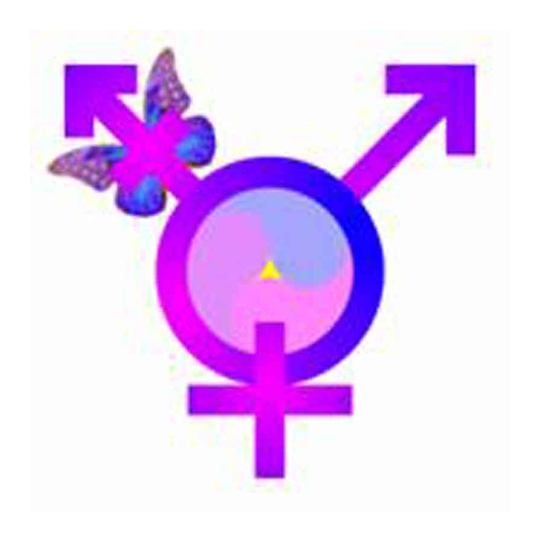Let’s change

by Mary Turner
HIV/AIDS Health Columnist
Imagine that you are at a get-together with some friends and family. Everyone seems to be having a good time until suddenly, a full-length mirror appears on one wall and all of you turn to face it. On the surface, you all appear to be just a group of men and women looking at a mirror. But then you realize that what people see if they look at your image isn’t really you.
They define you by that appearance, but your heart sinks because you know that that appearance is deceiving.
What you see and who you identify as do not line up together. This realization can not only be emotionally troubling for you as an individual trying to understand why nature gave you a body that does not match your existential knowing of yourself, but sharing this realization with others often brings about shaming, degrading, and rejection by those who should love and accept you.
Feelings of rejection, hopelessness, and despair can lead individuals to thoughts of suicide and potentially to suicide attempts. The National Gay and Lesbian Task Force and the National Center for Transgender Equality conducted a National Transgender Discrimination Survey (NTDS) to further our understanding of suicidal behavior among transgender and gender non-conforming people.
Across the general population, 4.6 percent of individuals report a suicide attempt over their lifetime. The results of NTDS showed that 41 percent of trans respondents reported a suicide attempt with trans men responding at a rate of 46 percent and trans women at a rate of 42 percent. More than half of the respondents who also reported being HIV+ (51 percent) had attempted suicide.
Respondents who reported having a disability also had a higher incidence of suicide attempts (56 percent for a physical condition; 55 percent for a learning disability; 65 percent for a mental health condition).
Experiencing a “double stigma” life situation increased the feelings of hopelessness and despair that lead to an exponential increase in suicide attempts. Those who have difficulty understanding transgender issues, or who espouse a religious belief that God only creates “pure” males and females, lack an understanding of basic biological and environmental principles.
Biology is not an exact science. We are continually learning new things as we develop better technologies and a better understanding of how our biological predispositions and environments influence us. There are gender non-conforming behaviors across many species. Some animals contain fully-functioning male and female reproductive organs. Others change their organs in response to environmental conditions that make reproduction more likely.
Still others engage in sexual behaviors with same-sex or even cross-species individuals in spite of the fact that these behaviors will not lead to offspring. This suggests that our sexual behaviors are not strictly for reproductive purposes and that those humans with transgender or gender non-conforming behaviors are not “broken” or “defective”.
The late Stephen Covey stressed the importance of understanding before attempting to be understood. We are less likely to fear things we understand. I challenge everyone to step away from the hatred and rejection that lead people who are “different” to put themselves in the shoes of those whom they fear and stigmatize.
Imagine living every day of your life in the knowledge that your family rejects you, that you struggle to have friends and a social life, that society eagerly makes laws that discriminate against you, that many in the medical community don’t want to treat you and that employers can fire you or refuse to hire you at will. If you’re honest with yourself, you’ll acknowledge that you began to feel alienated, alone...and hopeless.
Suicide wreaks havoc on those left in its wake. A failed attempt wreaks havoc on those who would have been left behind, and further increases the person who attempt’s sense of worthlessness.
If you are trans or gender non-conforming, I urge you to have the courage to seek and surround yourself with people who are open and accepting of you just as you are. You can find friends and allies, sometimes in unlikely places, but you may need to make the first effort to find them.
Haters are going to hate, so try to keep space between them and you. Become involved with self-help groups and agencies both to heal yourself and to be an inspiration for someone else who may also be struggling.
If you are truly depressed by your situation, seek professional help from someone with experience working with trans and LGBTQ issues. If you love someone whom you believe may be depressed and harboring thoughts of suicide, ask them directly. Don’t assume that they will bring it up first or that they will lie to you. Most people who are thinking about suicide will respond honestly if asked.
Listen in a nonjudgmental fashion. People with sexual identity and orientation issues, with mental health issues, and with disabilities are too often accustomed to being judged for their differences. They expect that no one will listen or try to understand them. Change that expectation for them. Help them know that they have value. Help connect them to resources that may help them.
Poverty, homelessness, physical health issues, mental health issues, HIV status, and disability all create hardships on people’s lives. Being transgender or gender non-conforming seems to tip the scales dramatically with respect to an individual’s loss of hope and desire to die.
If the NTDS statistics don’t punch you in the gut, perhaps you need to examine your own humanity. These statistics represent people. They are our children, our parents, our siblings, our friends, and our lovers. They have much to offer the world, but the world has made them feel worthless and unloved. That world is us. Let’s change.
The Gayly – November 16, 2015 @ 6:30 a.m.





